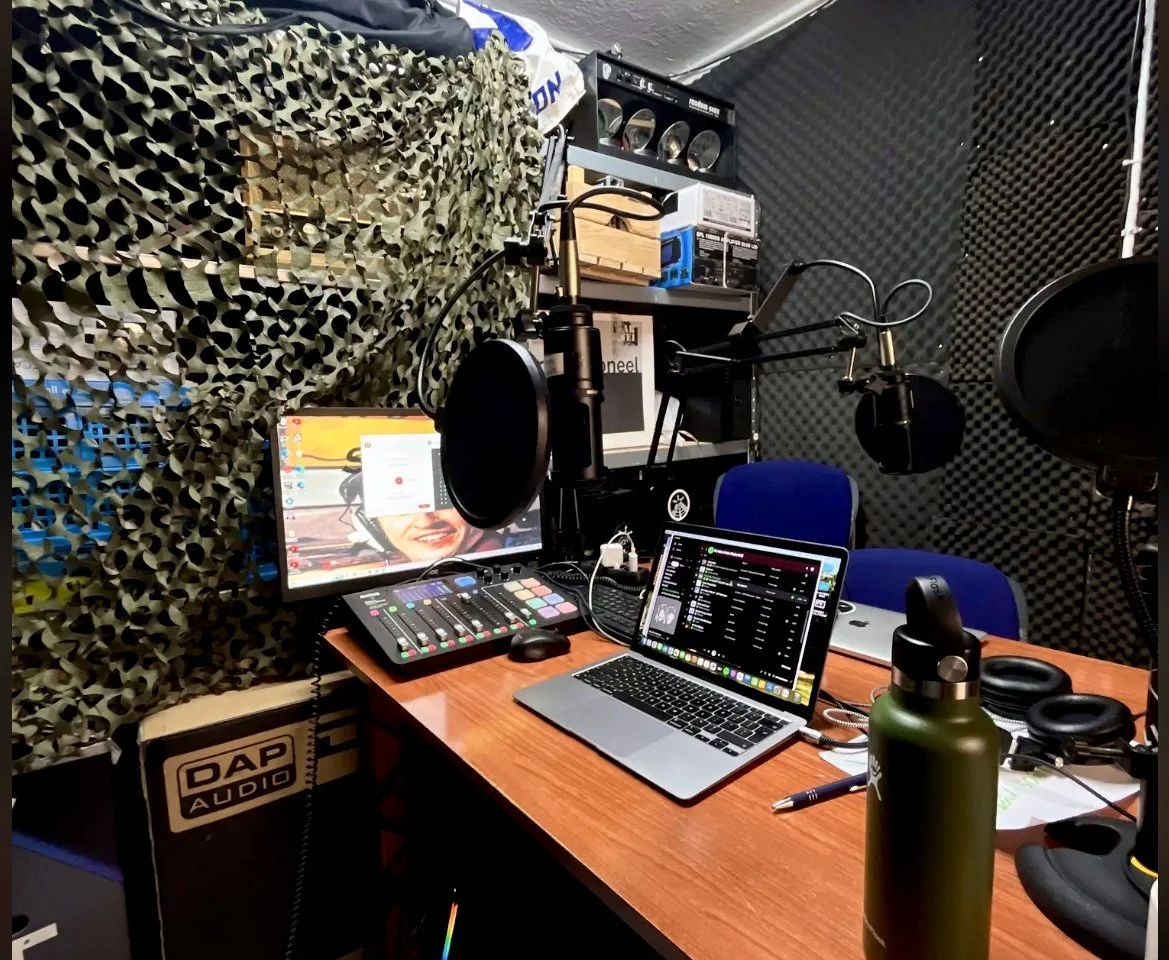An open love letter to college radio. It deserves more appreciation than it gets.
By Júlia de Oliveira Moritz
Almost an hour after I leave my house, past the river that isolates Amsterdam Noord, I walk up the metal steps into the cramped studio room. I’m surrounded by nicknacks, a fridge, and gear. I sit in my chair, adjust the mic, and start talking. It actually took me a while to realise I was kind of doing college radio. Although not really, because Slim Radio is independent, but the sentiment feels the same. Freedom in what I say and play, a close community not only within the radio but within the city, and hosting events to support local artists.
College radio is, in one way or another, as old as the music industry itself. With its heyday in the 70s, 80s, and 90s, it witnessed the birth of punk, disco, grunge, hiphop, new wave, alternative rock, and indie rock. These stations are a place of purity. Free from the commercial and contractual obligations of mainstream radio stations, college radio lets its hosts experiment. They play what they like, what excites them. They are fuelled by that innocent, almost child-like tendency to say “look at this cool thing I found!” Their faith in and love for music is what keeps the industry moving forward.
Were it not for college radio stations, bands like Nirvana, The Smiths, R.E.M., and Violent Femmes would have taken much longer to become successful. That’s assuming they would’ve become successful at all. This is in no way a dig at these bands, but it just goes to show how major stations can overlook extremely talented groups. In the case of Violent Femmes, for example, no station wanted to play their music and no label wanted to sign them. But with the approval of college radio, they grew a strong local fanbase and now have one of the most famous opening guitar riffs of all time.
This faith, this innocent sharing of new art leads not only to the global success of specific musicians, but it sparks movements. College radio shapes the zeitgeist, whether you realise it or not. Before major corporations catch up, college radio is there, in the clubs, in the shows, hanging out with the local musicians, lending an ear. Maybe it doesn’t even realise it’s doing it until it looks back an says “oh shit, I was there for the start of this”.
It breaks through the traditional gatekeeping systems and exposes the world to new, exciting acts that have been overlooked by major stations. They broadcast music and give it a platform before they become commercial hits. It’s a melting pot of genuine human interest and curiosity, a place run by people fuelled only by a love of music. It’s an escape from the general bullshit of the industry. The bureaucracy, the obligations, the deals, the contracts. It’s a place of freedom, of expression, of excitement. The power of college radio lies in that. It can shape the future of music, as it has since its beginning.
But is it going to stick around forever? Will our nostalgia revive it just as it has with the vinyls and the analog cameras? Or is it going to continue on its decline? I think in a time when we are often overwhelmed by choice in content, there is something nice about someone choosing what you listen to once a week. You pop on your headphones or turn on your speakers, and listen to someone who spends far too much time hyper-focusing on specific artists, songs, albums, or genres (like me).
College radio puts itself out there to find new music that hasn’t been an established success yet. And this is so crucial. The industry needs these people who look beyond what is already trending, to find new exciting artists. What if there were no college geeks in the 80s to play The Cure on their shows? I think I would have way fewer goth friends and that is not a life I want to live. So here’s to college radio, silently moving the industry along and taking chances on new acts. That excitement has to be preserved. That curiosity, the fact that we’re doing it for the sake of doing it. Not because we make money through talking about this music (we don’t), but because we are driven by a genuine desire to show the world what we have found. For as long as this desire is alive, so will college radio.
This article first appeared in Jùlia’s excellent blog. You should check out her other pieces here.


